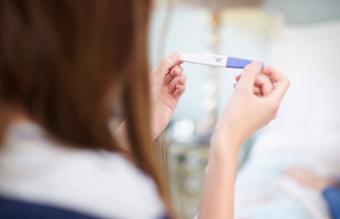
The loss of one testicle can decrease a man's fertility because of its negative effect on his sperm production and sperm quality, regardless of the reason for the loss. Male fertility is diminished when a man's semen analysis does not meet the World Health Organization (WHO) normal criteria.
Effect of Testicular Loss on Fertility
The semen analysis is a measure of a man's fertility capacity, and an abnormal analysis after loss of one testicle reflects his reduced potential to produce a pregnancy.
Tissue Factors
The most popular theory for the negative effect of the loss of one testicle (testis) on sperm production and fertility is that even before it's removed, the affected testis has a detrimental effect on the non-affected one. Tissue inflammatory, immune, or genetic factors, or "a quantitative loss of testicular tissue" may be involved, according to the authors of a study reported in the Scandinavian Journal of Urology and Nephrology.
Effect on Semen Analysis
Loss of one testicle can decrease the sperm count, sperm motility, and the percentage of normal sperm. The Scandinavian study examined the semen analysis of 54 men, ages 19 to 42 years who had lost a testicle in the six months to 30 years previously, between ages 3 to 38 years. The semen analysis was abnormal in 74% of the men, including 54% with low sperm count and 6% with no sperm. These men also had abnormal and poorly moving sperm.
When the men were grouped by the four main causes of testicular loss, the percentage abnormal semen analyses were similar for each group. All the men in the study had normal hormones, including testosterone, although in other studies there were hormonal abnormalities.
Testicular Cancer
Testicular cancer usually affects one testicle. A 2005 study of men in whom one testicle was removed because of testicular cancer was reported in the British Journal of Cancer. Twenty-three percent did not achieve a pregnancy. The lowest fertility rate was in the men who received chemotherapy plus radiation after surgery.
Mechanism for the Effect on Fertility
According to the results of a study published 1999 in the Journal of Clinical Oncology, the authors propose that even before the diseased testicle is removed, the cancer affects sperm production and sperm quality in the normal testis by one or more of the following mechanisms:
- Secretion of abnormal factors
- Increased testicular temperature
- Production of human chorionic gonadotropin (HCG) by the cancer
The Undescended Testicle
The diagnosis of undescended testicles (cryptorchidism) is usually made in the newborn, according to a 2000 review article by the American Association of Family Physicians (AAFP). Most often, only one testicle is affected when it fails to descend into the scrotal sac. A 1987 study reported in the European Journal of Pediatrics found that sperm numbers, sperm quality, and fertility were decreased in some men with a history of one undescended testicle or both.
A Variable Effect on Fertility
According to a 2004 review in Current Urology Reports, the effect on fertility is variable and unpredictable. It depends on the condition of the testis, where it's found - which can include the groin or inside the belly - and how early the diagnosis is made and treated. The loss of one testicle may occur when:
- The condition is not recognized and treated, and the testis shrinks (atrophies) or twists on itself and loses function, or develops testicular cancer.
- The undescended testis can't be found (" the vanishing testis") or when found, it is underdeveloped and sometimes just a streak.
- The testis is damaged during the surgery to bring it into the scrotum.
Mechanism for the Effect on Fertility
According to the AAFP review, studies show that when one testicle is undescended into the scrotal sac, the other one is likely to be abnormal. Genetic factors may play a role in the abnormalities. Evidence for this comes from the fact that testicular cancer, more common in men with a history of an undescended testis, occur more often in the descended testis.
Testicular Torsion
According to a 2013 Association of American Physicians review, testicular torsion (twisted testicles) happens when the sperm cord (vas deferens) twists around itself. They state that various studies report a range of 39 to 71 percent loss of the twisted testicle. According to a 2013 review article in the Journal of Pediatric Urology, there is an infertility rate of 0.5% after testicular torsion.
Mechanism for the Effect on Fertility
The theory for the negative effect on semen production and fertility is that before untwisting or removal of the affected testis, noxious, inflammatory substances or immune factors passed from the affected testis to the other across the blood testicular barrier.
Accidental Testicular Injury
Accidental injuries can cause loss of a testicle and affect sperm production, sperm function, and fertility. The injuries can cause physical loss of a testicle or functional loss from shrinkage (atrophy).
The most common cause of accidental injury is groin (inguinal) hernia surgery. In a study reported in 1991 in Andrologia, when hernia surgery led to shrinkage of one testicle and loss of its normal function, the semen analysis was abnormal. Other injuries come from blunt or sharp trauma or surgeries to treat problems of the testicle itself.
Reasons for Loss of the Testicle
A 2000 review in the British Journal of Urology International notes that accidental injuries cause loss of a testicle or its function because of :
- Removal of the damaged testicle at surgery
- A direct injury to the testicular tissue where the sperm is made
- Damage to its blood supply during trauma or surgery
- Damage to the sperm cord or epididymis gland during trauma or surgery
Mechanism for the Effect on Fertility
According to the authors of the BJOU study, one possibility for a decrease in fertility after loss of a testicle from injury is that there may also be unrecognized injury to the remaining testicle. In addition, inflammatory factors or anti-sperm antibodies from the removed or remaining damaged testicle might affect sperm production and function in the normal one.
Psychological Impact on Sexuality
Loss of a testicle can also affect fertility, even when the sperm count is normal. It can have a major psychological impact on a man and affect his sexuality, causing erectile, performance, and ejaculation dysfunctions and depression. If you have these problems, seek help and support from your doctor.







